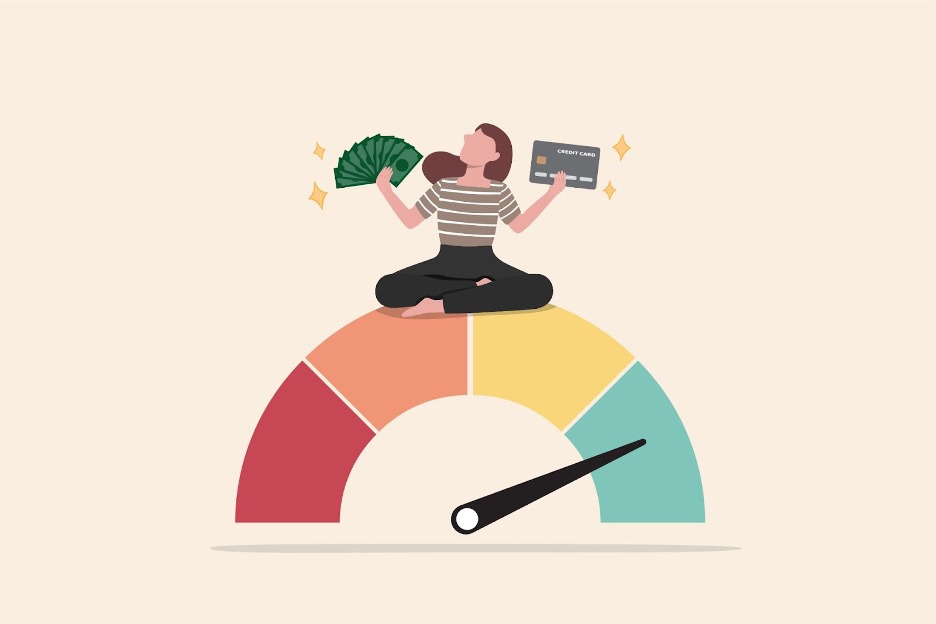If you’ve ever tried to buy a car or a house, then you’ve had your credit score checked. The purpose of a credit score is to assess the creditworthiness of someone applying for credit, such as loans or credit cards Credit scores can range anywhere from 300 to 850. A good credit score is anything above 670 while bad credit scores fall between 300 and 579, according to FICO which is used by 90% of lenders. If your credit doesn’t meet a certain threshold, you might not be able to secure a loan, rent an apartment, and in some cases it may even negatively affect your chances of getting a job. However, not all hope is lost. Your credit score isn’t permanent and there are several ways to improve it.
How Quickly Can You Improve Your Credit Score?
The lower your credit score is, the more likely you are to see quick point increases in a short period of time. It’s easier to go from a credit score of 579 to 679 than it is to go from 750 to 850. So, if you are having trouble getting approved for a loan or credit card, start with making small changes to improve your score. Strategies that are quick and easy to implement can have a big impact, such as requesting to be added as an authorized user on a family member’s or friend’s credit card or asking for higher credit limits on any current credit cards you already have. Another option is looking into “credit builder” credit cards, which are designed for those who want to build their credit. Community Credit Union offers one of these cards called the Visa Pivot credit card for building or repairing your credit.
6 Steps to Build Good Credit
Your credit score is typically made up of several factors, each with its own level of importance. For FICO scores, they are calculated using data that’s grouped into the following categories:
- Payment history (35%)
- Amounts owed (30%)
- Length of credit history (15%)
- New credit (10%)
- Credit mix (10%)
There are several steps you can take when working to improve your credit score using these different categories. Some will be more time consuming than others and you’ll need a bit of patience as you watch your score rise. But you’ll get there soon enough.
1. Review credit reports and dispute any errors.
Before you do anything else, start with your current credit report. Start by visiting AnnualCreditReport.com to obtain a copy of your credit report from the three major credit bureaus (Equifax, Experian and TransUnion). You can also view these weekly online for free. As you review your report, check for any inaccuracies or errors, such as incorrect personal information, accounts that don’t belong to you, or late payments that you believe were reported inaccurately. If you find any errors, dispute them with the credit bureau to have them corrected.
2. Pay bills on time.
One of the simplest ways to build good credit is to always pay your bills on time. This builds a positive credit history which overtime results in a positive credit score. Although it takes time to build up a good credit history, it is one of the foundational building blocks of a good credit score.
3. Pay attention to your credit utilization.
Credit utilization refers to the ratio of your credit card balances to your credit limits. In other words, it’s the percentage of your available credit that you’re currently using. Keeping your credit utilization low, ideally below 30%, is generally recommended for maintaining a good credit score. High credit utilization can indicate to lenders that you may be overextended financially, which could negatively impact your credit score.
4. Pay off your credit cards in full every month (before the billing cycle ends).
Paying off your credit cards in full every month, ideally before the billing cycle ends, can positively impact your credit score for several reasons. It naturally lowers your credit utilization while demonstrating responsible credit management and a positive payment history. All of these are viewed favorably by credit scoring models. If you have existing credit card debt and can’t pay them off in full every month, try to make a debt payoff plan to slowly increase your payments until the debt is fully paid.
5. Limit requests for hard inquiries.
Hard inquiries occur when a lender pulls your credit report as part of the application process for a new credit account, such as a loan or credit card. Each hard inquiry can temporarily lower your credit score, so it’s important to limit the number of inquiries on your credit report. Be selective about applying for new credit accounts and only apply for credit when you really need it. These don’t include personal credit checks such as from an online banking portal, pre-approved offers, or background checks, which are soft inquiries. There is no limit on how many soft inquiries you make and they won’t hurt your score.
6. Take care of collection balances.
If you have any accounts in collections, it’s important to address them as soon as possible. Accounts in collections can have a significant negative impact on your credit score and can stay on your credit report for up to seven years. Before it gets to that point, refer to any outstanding collection balances on your credit report and work with the creditor to negotiate a payment plan or settle the debts.
Building Your Credit Score With Community Credit Union
Whether you’re working to build your credit for the first time, repair your credit, or maintain a good credit score, Community Credit Union offers a wide variety of different credit card options to help. Credit lines range from $300 to $30,000 and each credit card is designed to suit a certain set of needs.
How to Maintain a Good Credit Score
Once your credit score improves, measures must be taken to maintain it. A good score can start falling as soon as you fall behind on any bills. Make sure you stay on top of payments with automatic bill paying and keep track of your score so you can periodically review it for accuracy. You can get your FICO credit score for free online with Community Credit Union’s credit card online portal. Sign up to become a Community Credit Union member to start building your credit and maintain it for good. To visit a Community Credit Union location, view our local branch locations in Peabody, Lynn, and Somerville, Massachusetts.

